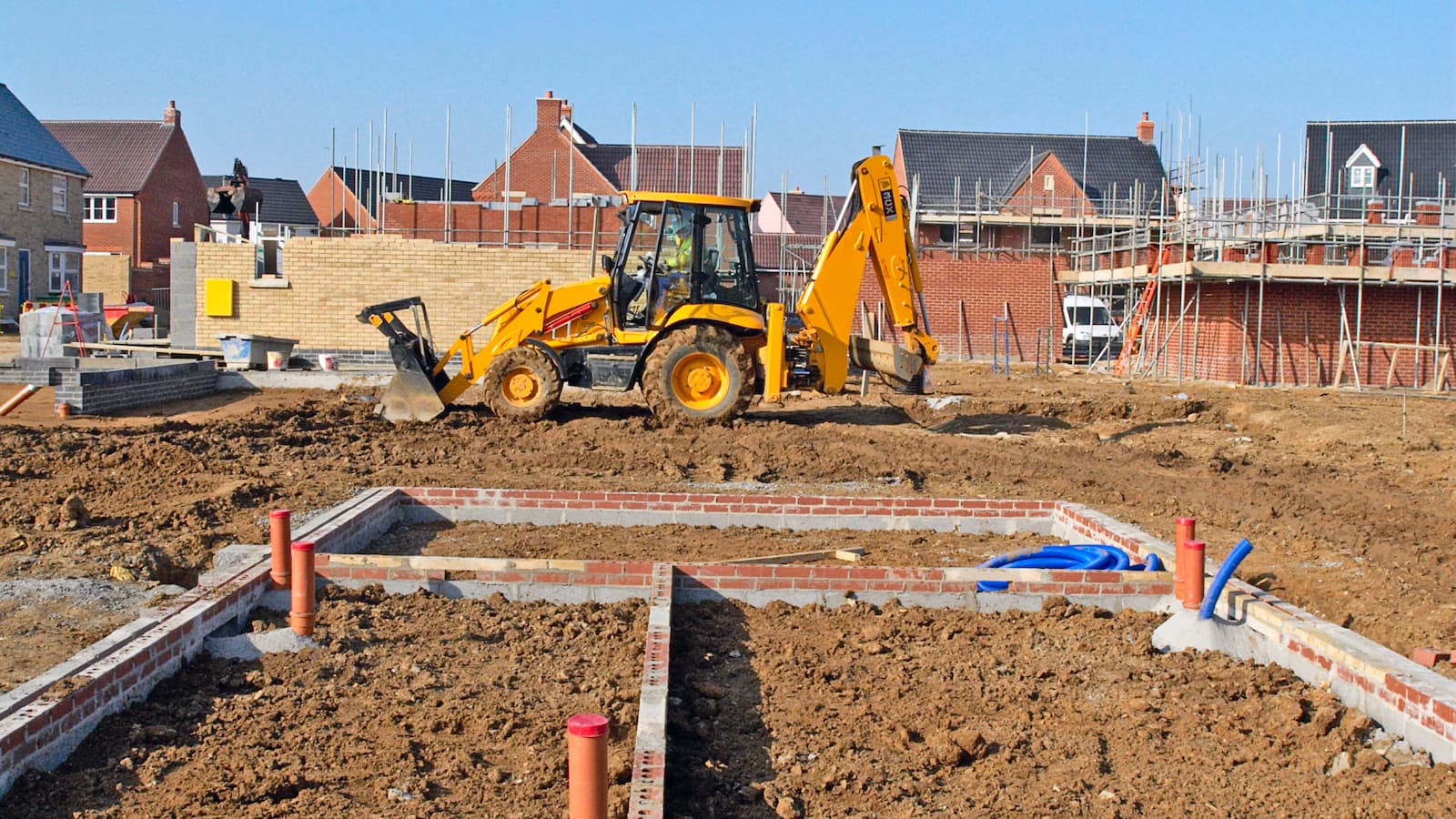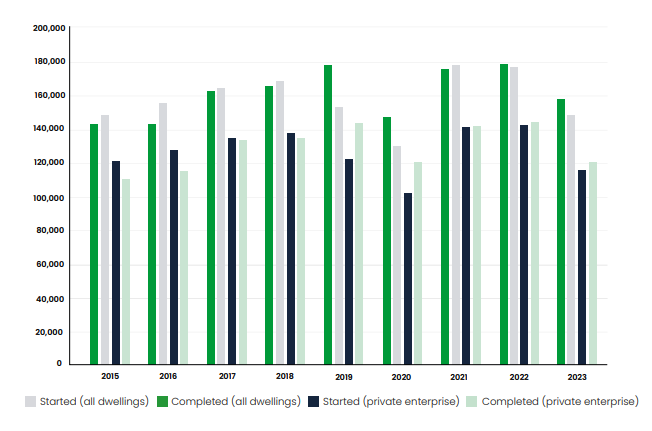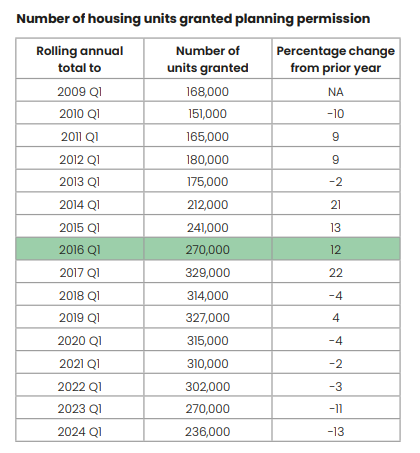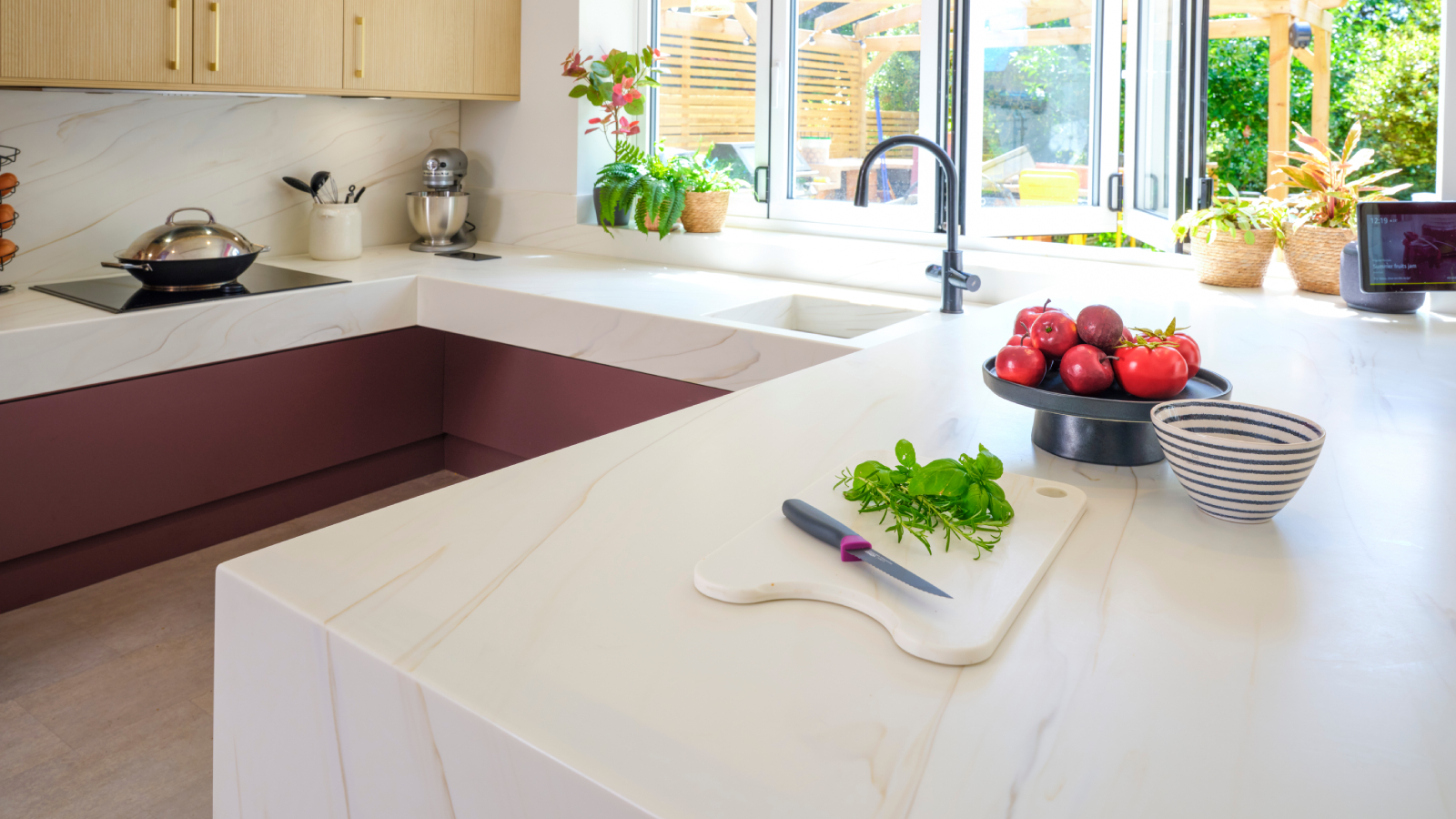One in three homes granted planning permission aren't built — we look at why
Record low planning permissions have been blamed for the record low home building figures, but research suggests this is not the main factor in causing the low numbers

Bring your dream home to life with expert advice, how to guides and design inspiration. Sign up for our newsletter and get two free tickets to a Homebuilding & Renovating Show near you.
You are now subscribed
Your newsletter sign-up was successful
More than one in three homes granted planning permission have remained unbuilt since 2015, according to a new data source.
The inaugural Planning Portal Market Index has revealed that over 1.2 million homes given planning permission since 2015 haven't been built, indicating a lack of planning permissions granted is not the main cause for the housing shortage.
We look at why these homes have been left unbuilt and what other factors are causing the record lows in house building.
How many homes have been built?
Since 2015, almost 1.5 million homes have been completed in England and Wales – considerably short of the 2.7 million homes granted permission.
Homes that have begun to be built by private enterprise companies are at their lowest point since 2015 (excluding 2020) and homes completed are at the lowest rate since 2016.
Local authorities contribute only a few thousand homes annually, which is less than 1.5% of the 300,000 yearly government target.

Index indicates planning permissions not to blame
With planning permissions at their lowest recorded levels in 2024 many have pointed the finger at these for the low homebuilding figures, but the Planning Portal Market Index suggests this is not the main cause.
Bring your dream home to life with expert advice, how to guides and design inspiration. Sign up for our newsletter and get two free tickets to a Homebuilding & Renovating Show near you.
These figures indicate that if all the homes with planning permission had been built at least 300,000 homes would have been built in eight of the last ten years.
Dr Riette Oosthuizen from HTA Design, commented: "The planning system is easy to blame, but it is certainly not at the core of the problem.
"For both the incumbent and incoming governments, challenging economic circumstances mean that partial reform of the planning system will do little to address the systemic problems. Instead, the entire delivery vehicle involved in delivering homes needs scrutiny. Planning departments do need more resources and the right skills, but the country’s housing problem is deeply structural."
Geoff Keal, chief executive of TerraQuest, the operator of Planning Portal, said: “These figures suggest that the near-exclusive focus on the planning system in the political debate around housing is misplaced. Until recently, planning permission was being granted for enough new homes to meet the government’s targets."

Why only one in three homes with planning built?
The index claims a number of other factors are slowing down homebuilding, such as higher costs to developers.
Geoff Keal stated: “High interest rates have a double impact on the completion of new homes. By dampening the housing market in the short term, they limit the potential commercial rewards available to housebuilders for proceeding with projects.
“This is compounded by the well-publicised challenges facing the construction sector in overcoming skills shortages that have left its headcount more than a quarter of million short of the number needed to meet projected demand. Meanwhile, the supply of fundamental construction supplies of bricks and blocks are down by 4.3% and 9.8% over the year to April, according to official statistics."
Dr Riette Oosthuizen concluded: "Ongoing political uncertainty has halted many large-scale housing schemes while we’ve also seen many initiatives/developments, with planning approval now unviable due to a lack of clarity in project finance and the cost of construction. An alarming number of construction companies have also gone out of business, leaving projects unfinished and therefore facing huge delays.
"Sky-rocketing costs have slowed down every step in getting a home built – from the cost of reaching planning approval to the rigorous policy expectations that each development needs to deliver (biodiversity net gain and affordable housing as examples) to the simple cost of getting homes built on the ground."

News Editor Joseph has previously written for Today’s Media and Chambers & Partners, focusing on news for conveyancers and industry professionals. Joseph has just started his own self build project, building his own home on his family’s farm with planning permission for a timber frame, three-bedroom house in a one-acre field. The foundation work has already begun and he hopes to have the home built in the next year. Prior to this he renovated his family's home as well as doing several DIY projects, including installing a shower, building sheds, and livestock fences and shelters for the farm’s animals. Outside of homebuilding, Joseph loves rugby and has written for Rugby World, the world’s largest rugby magazine.
